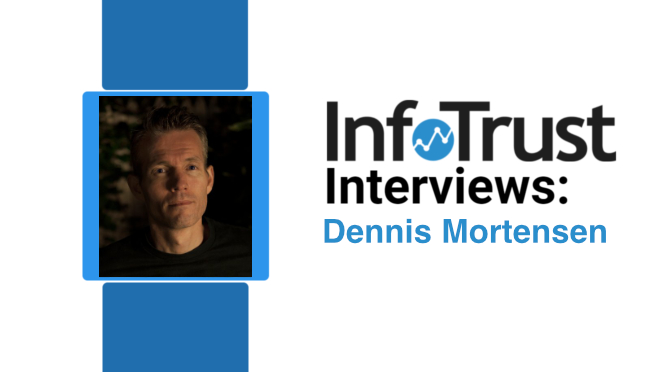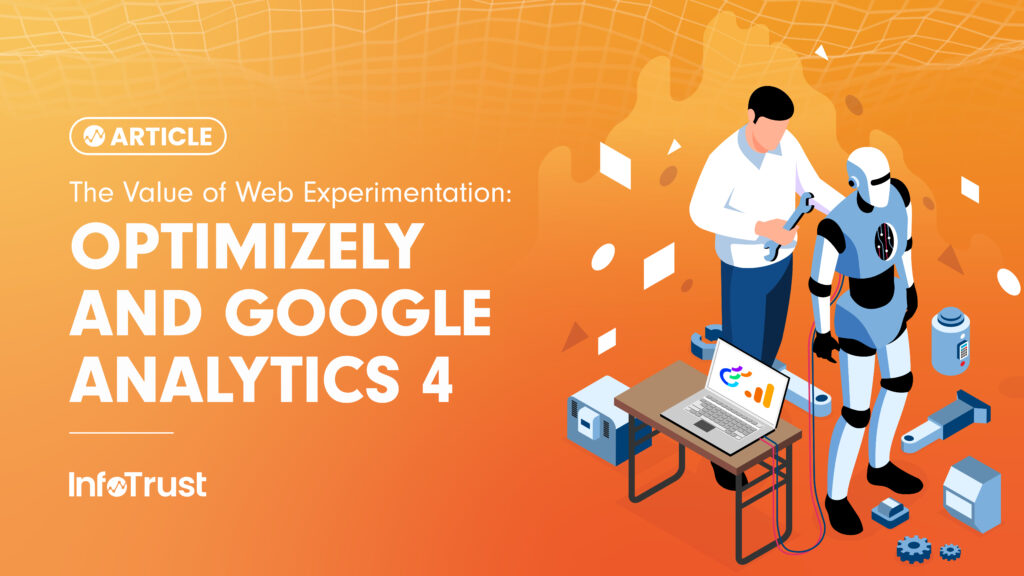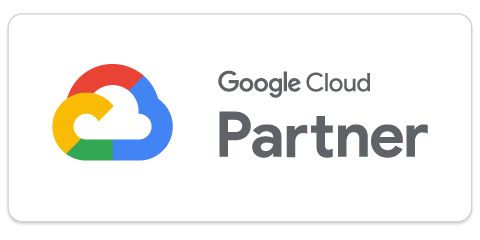
Dennis is the CEO and Founder of x.ai. He’s a pioneer and expert in the analytics, optimization and big data space and has been since its inception. He’s also an entrepreneur who has successfully delivered a number of company exits. Dennis’s long term vision of “killing the inbox” triggered the formation of x.ai and the creation of an artificial intelligence personal assistant to schedule meetings. He’s been an Associate Analytics Instructor at the University of British Columbia, the author of Data Driven Insights and a frequent speaker on the subjects of analytics and data.
ML: Dennis, how would you explain to people what you do?
DM: At x.ai, we schedule meetings. No more, no less. I think the way we attack it is quite different from what you might have seen in the market already. The way it works is that I receive an email from you saying that you’ll be in Manhattan one week in September, and you ask whether I have time for a cup of coffee. My response to you will be, “Hey, I would love to. I have CC’d in Amy, who can help put something on my calendar for when you’re here.” Amy will then remove me from the conversation, reach out to you, have a very human-like conversation about exactly when in early September, which day, what time, what location, and move the conversation towards a conclusion. She then sends us both an invite that ends up on our calendar.
If you think this rhymes with something that you’ve heard about before, that’s true. It’s called the human personal assistant who will sit in the front office and manage your calendar. That human tends to be quite expensive. You’re paying $50-$60,000 a year. We’ve developed this intelligent agent, which is a machine-operated process, that lets us sell this at SaaS (Software as a Service) pricing. Instead of it being a lottery for the few, it can be completely democratized, and everybody can have their own assistant to manage their calendar.
That’s us. We’ve spent the last three years working on this agent. It will be in market by the end of this year. We are slowly rolling out the Professional edition and testing it as we speak.
ML: Besides receiving a lot of emails yourself, what else was an inspiration to start this company?
DM: I think any entrepreneur has some sort of morbid fantasy of killing the email inbox altogether. It’s one of those things where, one: That’s never happening, and two: It’s email we should be worrying about.
If you go and look at all the things that are being assembled in your Inbox, one of the themes that is quite clear is that there is a ton of time spent on setting up meetings and negotiating dates, times, places, cancellations, and reschedules. There’s all the noise that comes along with trying to get you, me, and Stefanie on a call today. The more I looked at that, and certainly having experienced it intimately over the last twenty years, the more it seemed like it might be time where you shouldn’t create yet another app. Maybe create a truly intelligent agent that could take this on.
That was really the catalyst, back in late 2013. If you really want the unique catalyst, it was me, one late afternoon, jumping into my Inbox, looking at the amount of meetings that I did the year prior. What I found was 1,019 meetings throughout the year of 2012. I set every single meeting up myself. I had 672 re-schedules the same year.
Again, that just can’t be the future. It’s certainly not a future I’m looking forward to where, next year, I’ll do another 1,000 meetings. The meetings themselves, like you and I today, chatting on the phone, that’s cool. I love that. Setting it up, not so much.
That was the starting point. Then, we brought a team together. We ran a predictive analytics company Visual Revenue that was acquired by Outbrain. We were getting to the end of the process of integrating into Outbrain when I reunited the team from Visual Revenue and started to work on this idea, to see if it was even possible. We spent the first year really just discerning that it was not just a fantasy. It was also, from an engineering and science perspective at least, feasible.
ML: To people who may not know much about AI, and may be far from the technology side of things, how would you describe the mechanism behind your platform? How does it actually work?
DM: I certainly think that people have been exposed to the idea of assistants, and even smart assistants. Go no further than your iPhone and ask Siri what the time is in Singapore. She’ll have the capability to understand what you just asked her and the skill to tell you what the time is. We’ve certainly been exposed to that.
I do think there’s a slight paradigm shift where we’re going to move away from the question-and-answer setting, or “request an immediate action” setting, into this new setting where I want agents that completely understand the objective of the job I want them to do. Then, the agent will run away for a minute, hours, days, or weeks, and only come back once the job is completed.
Within that new setting, I think AI is the only way to really describe what we do. You’re not being empowered by a piece of software to do something. You’re not doing something a little bit faster because you’re enabled by software. No, you are asking this entity to do a job, you hope that it understands it, and then you walk away.
For us, we cannot merely mimic human conversation. We cannot assume we understand a little bit. We need to understand in full, with almost 100% accuracy, what you just asked Amy to do for you. Once she understands that in full, she needs to know: “What are the actions that I want to take to do this job to the degree where you will end up being happy, if not ecstatic?”
That certainly creates some positive strengths of these types of systems. I think we’re at the very beginning. We’ll have a different relationship with software half a decade from now. Really, if you think about it, software hasn’t conceptually changed much in the last several decades, or even in the past century. It’s become much faster, much easier to use, way more powerful, and all of that good stuff… but you are still the one doing the job.
If you want to create some sort of financial model for your company for the year 2017, sure, the current version of Excel is way more powerful than the first version of Lotus 1-2-3 that I played around with, but you are still the one doing the work. The future we wanted was one where you ask an agent to do a job, say, where you would like a preliminary draft of a financial model with these revenue goals put in place. Then, the agent will do that for you. You might still review it. You might still provide commentary, but it becomes much more of an employer-employee relationship, than a tool, if that makes sense.
ML: How does your technology, if you will, become better with time? Your personal assistant does scheduling for many of your clients or maybe many of your subscribers. Can it get smarter? Can it get better with time? What are the underlying principles?
DM: Amy most certainly gets smarter for every single meeting she sets up, which is part of the network effect of what we do. The more people schedule meetings through Amy, the better she gets. Simply by the fact that we schedule hundreds of thousands of meetings, Amy gets better at understanding any little detail of how you try to communicate with her and the ambiguities inherent in human language, Every day, she gets a little bit smarter.
That’s certainly where it comes up, almost obviously, that if you could even afford to hire a human to sit in the front office and do this task, it would seem silly in the future. No human would be able to do millions, if not tens of millions of meetings and learn from that. There would be some sort of ceiling to the number of skills they could assemble.
That’s how we always envisioned it, because even something that sounds strict like setting up meetings is not a decision tree. It is not something where you and I, if we spent enough time on it, can figure out all the ways that we could talk about meeting scheduling and all the things that can be included. This needs to be a living system of sorts where, if language changes, as it becomes shorter or more abbreviated because of texts, Amy needs to learn over time that the world isn’t what it used to be when it comes to how we talk about things. She needs to pick up on these things over time. That’s certainly how we designed the system.
ML: Right now, Amy focuses on scheduling meetings. Is that the end, or are there other activities that Amy will be able to onboard fairly soon?
DM: We are super-focused on being world-class at setting up meetings. That’s all we want to succeed at. If you take a step back and look at the volume of meetings being set up in the U.S. alone every year, you’ll get a count of about ten billion formal meetings. If we can set up all those meetings, I think we’ve succeeded wildly. If you look at, say, Dropbox and others, they all save files in the Cloud. Sure, I’ll agree that they’ll give you a pitch that’s much more elaborate than that, but really, at the end of the day, they save your files in the Cloud. At the end of the day, all we want to do here at x.ai is schedule your next meeting, and there’s a ton of them.
That’s our focus, and we’re going to stay true to that. That doesn’t mean we don’t have ambitions for how intelligent we want Amy to be or how nicely you want the meeting to be managed on your calendar. Sure, there’s hundreds of things we want to do. Take this meeting: if you were also a customer for us, you could have told Amy, “Hey, could you set up a WebEx with Dennis and Stefanie, please?”, then Amy should certainly have the capability to log into your WebEx account, create a meeting, extract the credentials, and figure out that Stefanie is in Singapore, send her the Singapore number so she could call in at local rates, and all that good stuff that really a smart assistant would do.
We’re still short of some of those features, since almost all our research has been focused on true machine dialogue so that Amy can talk to you in natural language. Just by the pure fact that we are talking here today, at this number, at this time suggests that we’ve done a reasonably good job. Otherwise, neither of us would have called in. That’s really our focus, and we will stick to that for the foreseeable future.
ML: Being that you are in the AI industry, do you see any noteworthy emerging trends or patterns?
DM: I do see one potential trend here, which is that there will be two types of AI. You can almost call the Siris, the Cortanas, and the Amazon Alexas, so on and so forth, as a sort of AI enablers, if you will. Then, you’ll have a set of highly-specialized vertical AIs that do one thing, and do that one thing extremely well, such as Amy at x.ai who can schedule meetings. You can certainly imagine a tax agent, travel agent, or other types of agents that will be equally specialized.
The overlap between these two types of AIs will be a scenario in which you will say, “Hey Siri, could you please have Amy set up a meeting between Stefanie, Dennis and I the first week of September at their office?” It’s now Siri’s job to take in the request, package it and send it on to Amy. It’s Amy’s job to solve it, seek out the participants, discuss when and where, addresses, so on and so forth. Then, upon conclusion, package and send it back to Siri, who can reach out to her customer or host. That will be the relationship.
I don’t think it will necessarily be as clunky as what I just suggested. I think if you ask the Siris and Cortanas to set up a meeting, they will understand that they don’t have that capability, but they’ll also understand that you have somebody on payroll, such as Amy, who does. When you ask Cortana to set up a meeting between the three of us, Cortana will simply reach out, knowing that this is a meeting, knowing they don’t have that skill but Amy does, and send it on forward. I think that’s certainly one way you could see the future play out with these two types of AI.
ML: Let’s talk about your book, Yahoo! Web Analytics: Tracking, Reporting and Analyzing for Data-Driven Insights. When thinking about driving insights through data, is there a process that you have found to be the most successful? We all can see that organizations understand having data is important, but often fail at knowing what to do with it.
DM: I’ve thought about it over time in the last twenty years, for very data-centric ventures where I started, and where many people still start looking at data. We did what you could define as log file analysis: Taking in massive amounts of log files and trying to make sense of them. That became a task of assembling, storing, retrieving, teasing out insights and then communicating on a bi-weekly, monthly, and quarterly basis.
Our next venture, for which my book was also an output, was to create a platform. Instead of relying on me to tease-out insights for your organization, how about a platform that helps you collect, store, retrieve, and dice your data, and you find the insight? That is certainly a step forward or further ahead on that arc. We did that for less than half of a decade.
Then, in our next venture we tried to tease out the insight, which can be hard. So how about I help you collect, store, retrieve and finalize the data, and then come up with recommendations for actions you should take based on this data? You might not follow my recommendations, but at least I can have a machine look at this data in a hundred thousand different ways and come up with some insights that might be either obvious or not so obvious. Then the platform becomes a sort of decision-support, and you’re taking actions on some of the recommendations. Some of them you discard because you think they’re silly or not good fits.
If you’re going to move further ahead of that arc and look at what we do here at x.ai, it’s really living within the same universe. It’s just that we don’t provide the recommendation, we also take the action. We collect the data, store it and retrieve it, model on it, come up with a recommendation, and take an action.
I think the world is moving towards the setting where you will not be rewarded for being the guy who came up with the answers. Many of the examples I just provided are settings in which you provide answers or insights. In the future, I think you will be rewarded for coming up with good questions. It’s the software and the system itself that provides the answers, not you. That means that you and I have certainly spent countless hours trying to achieve our insights, and slice and dice a piece of data so many times over that we figured out that somehow, there was a certain region on a certain set of campaigns that derive a slightly better margin than others. And then we will communicate that to the CMO.
I actually think the future will reward us for good questions. For example: Which of the DMAs in the U.S. where we advertise provide the best margin? That might be a good question for certain people, but after seeing the results, you might have another question. I think that’s what we’re moving towards. That’s certainly how I’ve been thinking about things and how I’ve experienced the last twenty years around data.
ML: One of the chapters in your book is entitled “Content Optimization and Competitive Intelligence.” How do you think analytics can help organizations become more competitive?
DM: Any type of competitive analysis is really just trying to have you either create context or a backdrop for your own internal data. A ton of existing analysis is done in a silo. I think the future will create some sort of competitive setting where you would automatically inject data from the market and act upon it, not just through analysis.
You’re already seeing this in how people are trading stock today. That’s an ultra-competitive setting. I think it will be injected into many other places where you would not be allowed to run a campaign or take an action without having input from the world at large, and adapt to whatever that input might be.
Today, I think what we do is quite rudimentary. I think you must utilize competitive data in some way, shape or form. I think it needs to be much more automatic so that any change in the outside should have an effect on what you do.
That’s certainly how I see it. I think most people should try to figure out “How could that become part of my world?” Not that you need to replicate or mimic what your competitors are doing. No. You need to make sure that, if they do something, there should be a reaction to that action. That reaction can be nothing, but it ought to be something.
ML: What’s next for you? You’re working at a very interesting company in a very hot space, artificial intelligence. What are some of the things that you are excited about over the next five years?
DM: I think we are at the very beginning of autonomous AI or intelligent agents, if you will. In the next half-decade, you’ll see the industry cement AI agents as being the next software paradigm. What we think we know today, I think we’ll just know more of in five or six years. I think there will be a paradigm shift in how we perceive software, from software today being something that will assist you in doing a job a little bit faster than you used to, or a little bit more accurately than you used to, into this new setting where you won’t be the one doing the job. You will describe the objective of what you want done, and the software will do that for you. That will be how we interact with almost any new piece of software. I find that super-interesting.
I also think that the input to software will change. Today, it’s syntax-driven. You have to interact with the software as it’s been designed, whether that’s clicking or tapping or using certain phrases, and you can’t really go outside of that framework. I think the future will be one where the input will be natural language.
We don’t need high information, input boxes and drop downs, calendars and what have you. You’ll just ask Expedia, “Hey, could you help me, my wife and my two teenage daughters get to Miami over the weekend for less than a $1,000, please? I would like to be back Monday at 10 a.m.” Now, I told you my request. I can certainly go through Expedia this moment and try to input that and look at the results pages and see if I can string that together, but I already knew what I wanted. Why is that my responsibility? Why is it not the responsibility of Expedia to understand what I wanted?
I think the burden will be moved from me to software over the next half-decade. It is up to the software to figure out how to translate my request into an answer. That’s what I said before about rewarding questions, not answers. Expedia really should bear the burden of trying to figure out what I want.
Those are the kinds of things that I’m excited about. I cannot not see it happen over the next five or six years. Super exciting times ahead of us.
ML: Are there any resources or articles that you would like us to include or share with the audience?
DM: Let me be super-biased here and share a blog post that we did at x.ai called, “How to Teach a Machine to Understand Us.” I believe a lot of folks don’t fully understand how much effort it is to train one of these agents. I think it’s an eye-opener or certainly an interesting article for tech-savvy people. It’s certainly easier to say AI, but how do you go from saying it to having it? I think that’s a good starting point, and kind of challenges the notion that “Oh, I thought it would be more sexy. It looks like hard work.” Yeah, it kind of is.
Resources
You can find Dennis on Twitter @DennisMortensen or learn more about AI development on the x.ai blog!



